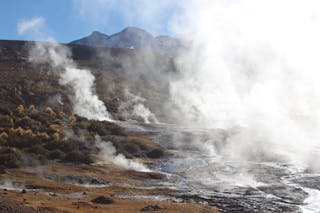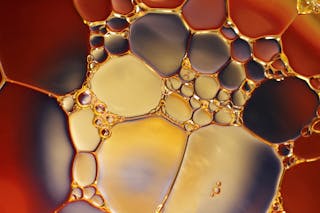
Essential oils are natural, concentrated extracts from plants. They are not oils in the true sense of the word, since they do not contain fatty acids. Rather, they are volatile aromatic compounds that give plants their distinctive smells. Essential oils are used extensively in aromatherapy and other traditional medicinal practices.
There is some evidence that certain essential oils may have health benefits. For example, lavender oil is thought to help promote relaxation and calm anxiety. Some research suggests that peppermint oil may help relieve nausea, while another study found that eucalyptus oil may help relieve muscle pain.
Essential oils are typically produced by steam distillation or cold pressing. This process extracts the oils from the plant material, which is then condensed into a concentrated form. The finished product is a highly concentrated, volatile substance that is typically used in very small amounts.
Essential oils should be used with caution, as they can be very potent. They should never be ingested or used undiluted on the skin. Be sure to consult with a qualified aromatherapist or health care practitioner before using any essential oil, especially if you have a medical condition.
What are the benefits of using essential oils?
Essential oils have been used for centuries for their many wellness benefits. Modern science has begun to catch up, studying how these powerful plant extracts can improve our health in a variety of ways.
There are many different ways to use essential oils, but some of the most popular include topical application, aromatherapy, and massage. Each method can offer different benefits, but all are effective in promoting relaxation, reducing stress, and improving overall health and well-being.
Topical application of essential oils can be used to treat skin conditions, relieve pain, and reduce inflammation. Aromatherapy uses the power of scent to improve mood, boost energy levels, and promote sleep. Massage therapy with essential oils can help to reduce tension headaches, improve circulation, and ease muscle pain.
One of the most important benefits of essential oils is their ability to promote relaxation. In today’s fast-paced world, it’s more important than ever to find ways to release stress and unwind. Essential oils can help to do just that, by soothing the mind and body and promoting a sense of calm.
Lavender oil is one of the most well-known essential oils for relaxation. It has a sweet, floral scent that is known to promote calm and reduce anxiety. Chamomile oil is another popular choice for relaxation, as it has similar effects to lavender oil.
Bergamot oil is another excellent essential oil for relaxation. It has a citrusy scent that is uplifting and refreshing, but can also help to reduce stress and promote a sense of calm.
In addition to promoting relaxation, essential oils can also be used to improve mood and boost energy levels. Citrus oils like lemon and grapefruit are perfect for this, as their bright scents can help to elevate the mood and increase energy levels.
Rosemary oil is another excellent choice for an energy boost. It has a refreshing, herbaceous scent that is invigorating and energizing. Peppermint oil is another popular option for an energy boost, as it is known to improve mental alertness and focus.
Essential oils can also be used to promote better sleep. If you’re struggling to get a good night’s rest, consider adding a few drops of lavender or chamomile oil to your bedtime routine.
getting a restful night’s sleep, essential oils can also
Are essential oils safe for birds?
Essential oils are a popular and convenient way to enjoy the benefits of aromatherapy. However, as with any product that contains chemicals, there is always the potential for safety concerns. This is especially true when using essential oils around birds, as their sensitive respiratory systems make them particularly susceptible to the effects of airborne chemicals.
The good news is that, when used properly, essential oils can be safe for birds. In fact, many bird owners use essential oils to help their feathered friends feel relaxed and comfortable. The key is to use only a small amount of oil, and to make sure that the oil is diffused properly so that your bird is not exposed to large concentrations of fumes.
When diffusing essential oils, it is important to keep the following safety tips in mind:
- Use a diffuser that is specifically designed for use with birds. Some diffusers can release large amounts of oil into the air, which can be harmful to birds.
- Place the diffuser in a room that your bird does not have access to. This will help to prevent your bird from being exposed to too much of the oil.
- Only use a small amount of oil in the diffuser. A little goes a long way when it comes to essential oils, so there is no need to use a lot.
- Make sure that the diffuser is placed in a well-ventilated area. This will help to ensure that the fumes from the diffuser do not build up and become harmful to your bird.
- Avoid using essential oils that are strong-smelling, such as eucalyptus or tea tree oil. These oils can be irritating to birds, and should be avoided.
- Do not allow your bird to drink the water from the diffuser. This can be dangerous, as the oils can be toxic if ingested.
By following these simple safety tips, you can use essential oils around your bird without worry. Remember, essential oils can be a great way to help your bird relax and feel comfortable, but only if they are used properly.
What are the side effects of using essential oils on birds?
Essential oils are naturally occurring, volatile, aromatic compounds that are found in the seeds, bark, stems, leaves, roots, and flowers of plants. These oils are used for a wide variety of purposes, including for their scent, flavor, and potential health benefits.
Some essential oils, such as eucalyptus oil, tea tree oil, and lemon oil, have been shown to repel birds when used in a diffuser. However, diffusing essential oils can also have negative side effects on birds, causing them to become sick or even die.
Birds are very sensitive to smells and can easily be overwhelmed by strong scents. When diffused into the air, essential oils can quickly reach toxic levels for birds, causing respiratory problems, headaches, and nausea. In extreme cases, essential oils can cause nervous system damage, liver damage, and death.
Essential oils should never be used directly on birds, as they are much too concentrated. When used in a diffuser, essential oils should be kept at a minimum distance of six feet away from birds to prevent them from becoming sick.
Are there any precautions that should be taken when using essential oils around birds?
Essential oils are becoming increasingly popular as people look for natural alternatives for their health and wellbeing. However, there is little information available about the safety of using essential oils around birds.
Birds have a very different physiology to humans and other mammals, and so it is difficult to say definitively whether or not essential oils are safe for them. However, there are some things to consider when using essential oils around birds.
Firstly, birds have a very different respiratory system to mammals. They have a unique airsac system which means that they are more sensitive to airborne toxins. This means that they are more likely to be affected by essential oils than mammals.
Secondly, birds have a very different metabolism to mammals. This means that they may metabolise essential oils differently, and so they may be more or less affected by them.
Thirdly, the skin of birds is very different to mammals. Birds have a thin layer of feathers which cover their skin. This means that their skin is more permeable and so they may be more susceptible to the effects of essential oils.
Finally, it is important to consider the individual bird. Some birds may be more sensitive to essential oils than others. It is therefore important to consult with a vet or experienced aviculturist before using essential oils around birds.
In conclusion, there are some things to consider when using essential oils around birds. However, there is no definitive answer as to whether or not they are safe. It is therefore important to consult with a vet or experienced aviculturist before using essential oils around birds.
What are some of the most popular essential oils used around birds?
There are a variety of essential oils that can be used around birds. Some of the most popular essential oils used around birds include lavender, geranium, and chamomile. These essential oils can be used to help soothe and calm birds, as well as help to repel insects.
Lavender essential oil is one of the most popular essential oils used around birds. This oil has a sweet, floral scent and is known for its calming and relaxing properties. Lavender oil can help to soothe and calm birds, and is often used in a diffuser to create a relaxing environment.
Geranium essential oil is another popular oil used around birds. This oil has a sweet, floral scent and is known for its insect-repelling properties. Geranium oil can help keep insects away from birds, and is often used in a diffuser or in a spray.
Chamomile essential oil is another popular oil used around birds. This oil has a sweet, herbaceous scent and is known for its calming and relaxing properties. Chamomile oil can help to soothe and calm birds, and is often used in a diffuser or in a spray.
How do you properly dilute essential oils before using them around birds?
There are a few considerations to take into account when diluting essential oils before using them around birds. The first is the size of the bird. Smaller birds have a higher rate of metabolism and breathe more rapidly, so they are more sensitive to the effects of essential oils. It is generally recommended to use a lower concentration of oil for smaller birds. The second consideration is the type of oil being used. Some oils, such as eucalyptus, melaleuca (tea tree), or peppermint, are more potent and should be used with caution. These oils can be irritating to the respiratory system and should be used sparingly, if at all.
When diluting essential oils, it is important to use a carrier oil such as jojoba, sweet almond, or coconut oil. These oils help to distribute the essential oil evenly and prevent it from evaporating too quickly. The recommended ratio of essential oil to carrier oil is typically between 2-5%. For example, if you are using 2 drops of essential oil, you would add it to 10 drops of carrier oil. Once the essential oil is diluted, it can be applied to the bird’s feathers using a cotton ball or soft cloth. It is best to avoid applying the oil directly to the bird’s skin as this can be irritating.
Some essential oils, such as lavender or chamomile, have calming properties and can be helpful in reducing stress in birds. However, it is important to remember that each bird is unique and will respond differently to essential oils. It is always best to start with a small amount of oil and increase the concentration if needed.
What are some of the most common ways to use essential oils around birds?
Essential oils can be used in several ways around birds to address various needs such as support during times of stress, helps with feather growth and development, and can be used as a natural insecticide. Some of the most common ways to use essential oils around birds are adding them to the bath water, using them in a diffuser, or applying them topically.
Adding essential oils to the bath water is a great way to help your bird relax and de-stress. This can be especially helpful if your bird is going through a molt, as the added moisture will help with feather growth. When using essential oils in the bath, be sure to only use a few drops as too much can be overwhelming for your bird. A good ratio to follow is one drop of essential oil per two cups of water. You can also add a few drops of essential oil to your bird's drinking water. This can help to support your bird's respiratory system and can also be helpful in keeping your bird's cage and environment clean and free of harmful bacteria.
Using a diffuser is another great way to use essential oils around birds. This can be especially helpful if your bird is feeling stressed or anxious. diffusing essential oils can also help to support your bird's respiratory system and can help to keep your bird's cage and environment clean and free of harmful bacteria. When using a diffuser, be sure to only use a few drops of essential oil as too much can be overwhelming for your bird.
Applying essential oils topically is also a great way to use them around birds. This can be done by adding a few drops of essential oil to a cotton ball and then applying it to your bird's skin. This can be especially helpful in times of stress or anxiety, as the essential oils can help to calm and soothe your bird. When applying essential oils topically, be sure to only use a few drops as too much can be overwhelming for your bird.
Essential oils are a great way to support your bird's overall health and well-being. When using them around birds, be sure to only use a few drops as too much can be overwhelming for your bird.
Are there any other considerations that should be made when using essential oils around birds?
Birds are wonderful creatures and using essential oils around them can have many benefits. However, there are a few things to keep in mind when using essential oils around birds. First, make sure that the essential oil you are using is safe for birds. Some essential oils can be toxic to birds, so it is important to do your research beforehand. Second, use a diffuser with your essential oils instead of applying them directly to your bird's skin. This will help to avoid any irritation. Finally, be sure to keep a close eye on your bird when using essential oils, as they can be very sensitive to their effects. If you notice any adverse effects, stop using the essential oils immediately.
Frequently Asked Questions
Do essential oils kill birds?
There is mixed information online about whether essential oils can kill birds. Some online sources say that certain oils, including pine, cedarwood, melaleuca and citronella, are toxic to birds, but there's very little evidence to suggest this. Either way, birds are generally smart, and won't drink from essential oils or bathe in these oils.
Can you use an essential oil diffuser with a pet bird?
Yes, you can use an essential oil diffuser with a pet bird as long as you keep any type of diffuser away from the bird's cage and monitor the bird while it is using the diffuser. Many essential oils are safe for birds, but Tea Tree Oil should not be used because it can be toxic to them.
Can essential oils be used to treat parrots?
One vet who has had some success with using essential oils to treat parrots is Emmett the Parrot. According to this vet, certain essential oils can help parrots calm down, relax and steady moods. These oils should be used in a diluted form, and only when necessary.
What essential oils are safe for birds with scabies?
Clove oil, eucalyptus oil, lavender oil, lemon oil, and tea tree oil are all generally considered to be safe for birds with scabies. However, always confirm this with your vet before using any of these oils.
What essential oils are safe to use around birds?
There are many essential oils that are generally safe to use around your bird, including floral oils such as geranium, lavender, ylang-ylang, rose, jasmine and citrus oils such as orange, lemon, lime, grapefruit and bergamot. Frankincense is also a safe oil to use around birds because it has a sedative effect.



